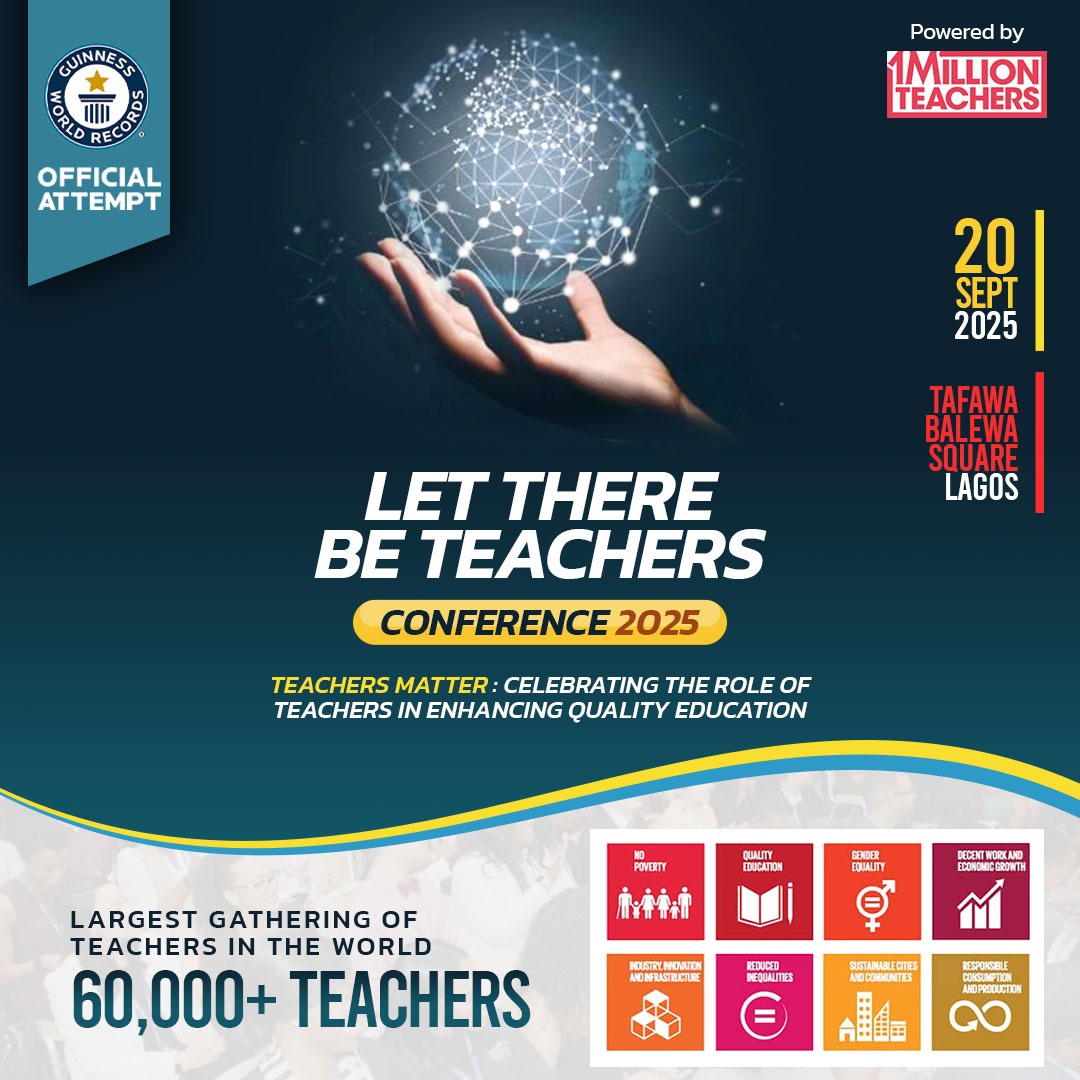Let There Be Teachers Conference
“Without inclusive and equitable quality education and lifelong opportunities for all, countries will not succeed in achieving gender equality and breaking the cycle of poverty that is leaving millions of children, youth and adults behind in Nigeria.”1 According to UNESCO, 20 million children and youth are out of school2, and “data from the ministry of education revealed that as of September 2021, 38 percent of the estimated 200 million population, representing over 76 million adults, are non-literates”3. With about half of the Nigerian population being under the age of 19, the saying that the youths are the leaders of tomorrow takes on a whole new meaning.
We know however that having been bequeathed with some of the poorest leadership models, and a declining values system, preparing the leaders of tomorrow requires a deliberate effort at reforming mindsets as we cannot solve our problems with the same thinking that produced them. On an average, there are about 50,000 graduates produced yearly in Nigeria without the necessary skills to fit into the current societal challenges. Also, there are about 25 million unemployed graduates4 and this is a wake-up call for national planning in the area of employment, and for everyone, especially those of us in the education industry, this is a call to prepare our youths for what lies ahead! It’s time to transform our society by deliberately investing in people and putting more attention on education.
Let There Be Teachers Conference is an event that brings together stakeholders in the education sector in Nigeria, the African Continent, and the global education community. The primary purpose of the conference is to bring together thousands of teachers, school leaders, school owners/proprietors, Vice Chancellors, Rectors, Provosts, corporate organisations and major stakeholders in education to dialogue across the board, to speak to new times, chart a new course and provide a way forward for the future of education in Nigeria. In addition, the events serve to galvanize and encourage governments and stakeholders in Nigeria to commit and take actions towards improving teaching, learning, learning outcomes, and the education sectors in various states.

